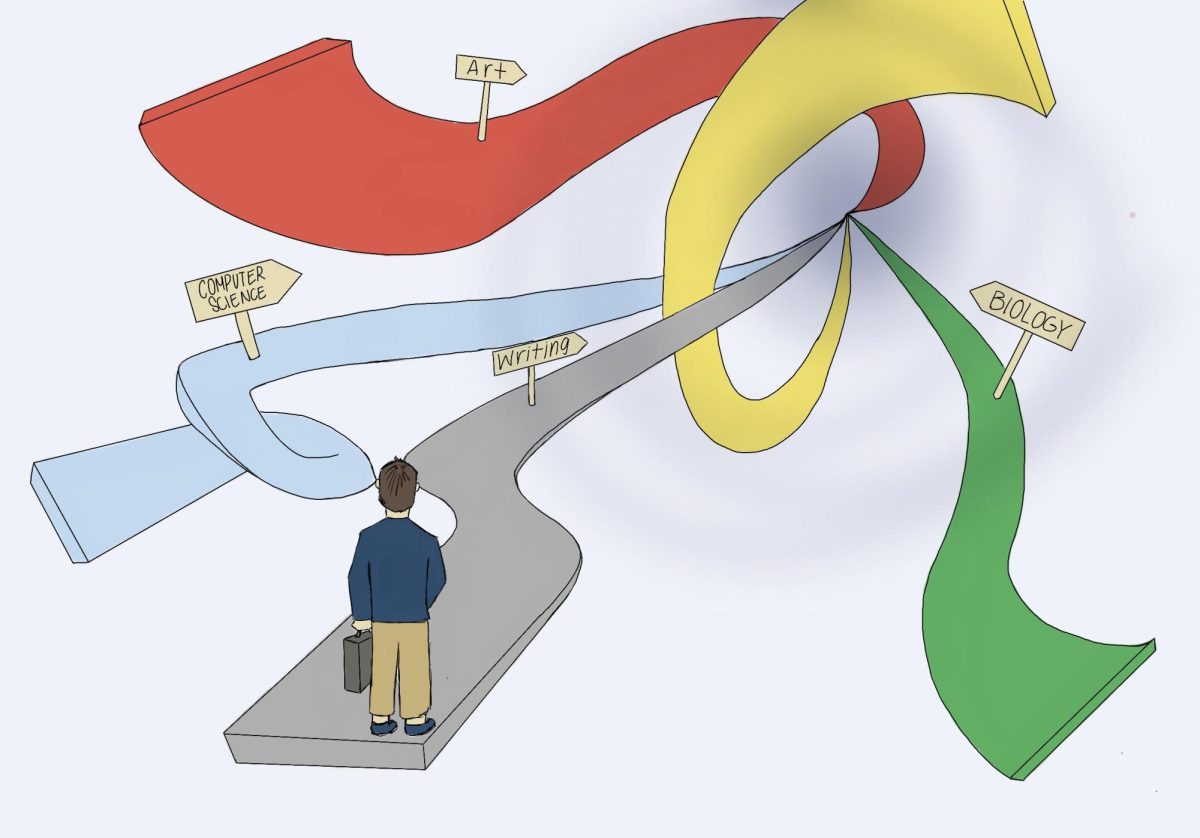If you’re reading this, chances are that you’re a cheater. Statically speaking, chances are that I am too.
The vast majority of students would tell you that they believe cheating on assignments is wrong and immoral. According to most, they still believe in a system and society that relies on fairness and equity, genuinely believe that cheating is against their principles, and would even judge their classmates if they found out about them cheating on a test. However, a quick look at the numbers can tell us that those same students are almost definitely getting through school by cheating. According to numerous studies, 50-70% of students admit to being cheaters—and that number’s only counting those who are brave (or shameless) enough to self-report their academic dishonesty. The stats are likely similar at DVHS, where incidents of students cheating seem to be spreading like wildfire between departments. So, why is there such a discrepancy between students’ self-reported beliefs and their actions, and why has cheating become an academic norm?
Some say that it’s just human nature and always has been. Since the 1950s, researchers have studied the effects of cognitive dissonance, or in other words, when people subconsciously modify their beliefs because their actions stop aligning with them. . Additionally, the reality is that morals can often take a backseat when someone feels that their workload has become unmanageable, and it’s no secret that this is a widespread experience at DVHS. But what this doesn’t explain is how rapidly cheating rates have increased, most especially in recent years.
29% of students have reported an increase in their cheating since 2020, and virtual learning’s role in this hasn’t gone unnoticed either. It was significantly easier for students to cheat when their teacher was never in the room with them, the internet was easily accessible during every assignment, test and project, and the probability that they’d ever be caught decreased significantly without the presence of Wi-Fi monitoring or district-issued devices that came inbuilt with website blockers. Five years out from the pandemic, it makes sense that current high school-ers, who would’ve been going through some of the most formative years of education when cheating became easier than ever, are in the habit of near-constant academic dishonesty.
But by far the biggest contributor to the normalization of cheating is generative AI’s recent rise. AI tools such as ChatGPT, DeepSeek, and Google’s Gemini have made a process that used to require some level of sneakiness all too easy. Cheating was once considered an abnormality or a last resort. AI has turned it into a strategy, and unfortunately, it’s a strategy that has proved effective for those who utilize it. Those who were discouraged from cheating by the fear of getting caught, or the idea of putting in the organizational effort to prevent being caught, no longer have to worry about either. Despite the presence of countless AI-checker programs on the market, none are advanced enough to truly be effective, and most teachers still have to rely on intuition to tell if a student has used AI. Although improvements are being made, most students using AI know they’re not likely to be caught. Additionally, one of the biggest draws of using AI for the purposes of academic dishonesty is that it’s incredibly effortless. Generative AI is designed to reduce thinking as much as possible, and it provides results in mere seconds. What it lacks in quality and integrity, it makes up for with convenience. For cheaters, life has never been better than it is today.
Social media has also promoted and normalized academic AI usage in a deeply harmful way. As a student, it’s nearly impossible to scroll through social media without seeing ads for at least five new AI-based homework completion tools. Companies looking to make money off of young people are incentivized to push them towards these products, even if it means encouraging them to become cheaters in the process. Students perpetuate this normalization by posting about their academic dishonesty, often rebranding it as a “life hack” that will help the viewer be more efficient. Partly because of social media’s over-marketing of AI apps and websites, cheating is treated like a simple fact of academic life.
Despite how normalized it’s become, we shouldn’t treat cheating like it’s something that has to happen. It may be what’s pushed on us through advertising and media, but allowing this to dilute our perceptions of morality now will only make it culturally acceptable to lie and scam in other areas of life later on. Yes, cheating is common. Yes, generative AI is used by most students on an almost daily basis. It’s still wrong, it’s still immoral, and it’s about time we start treating it as such.







